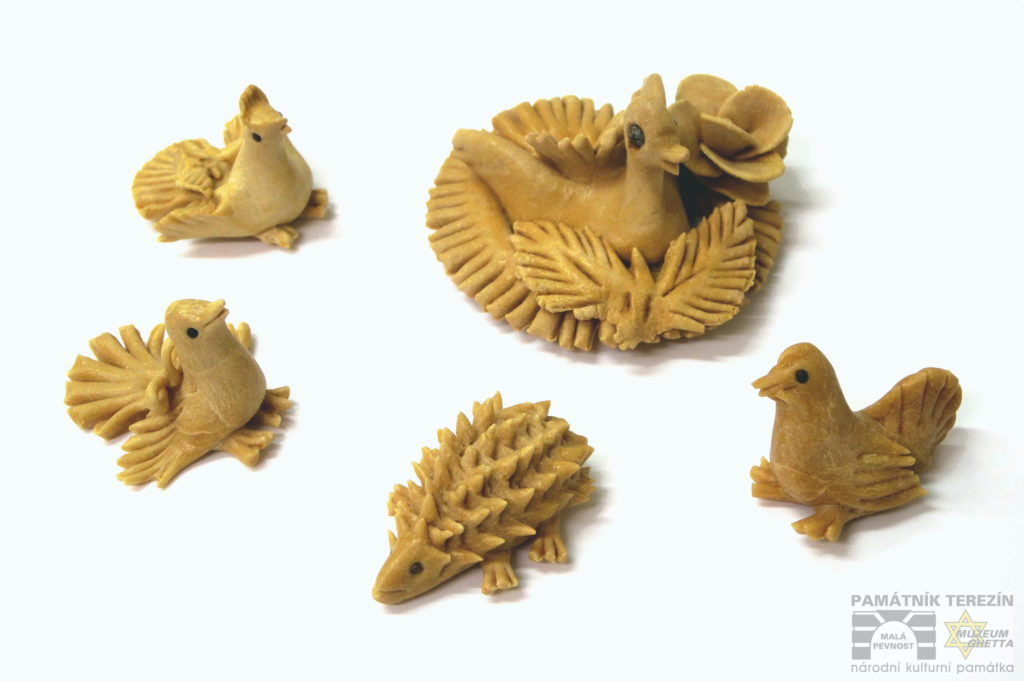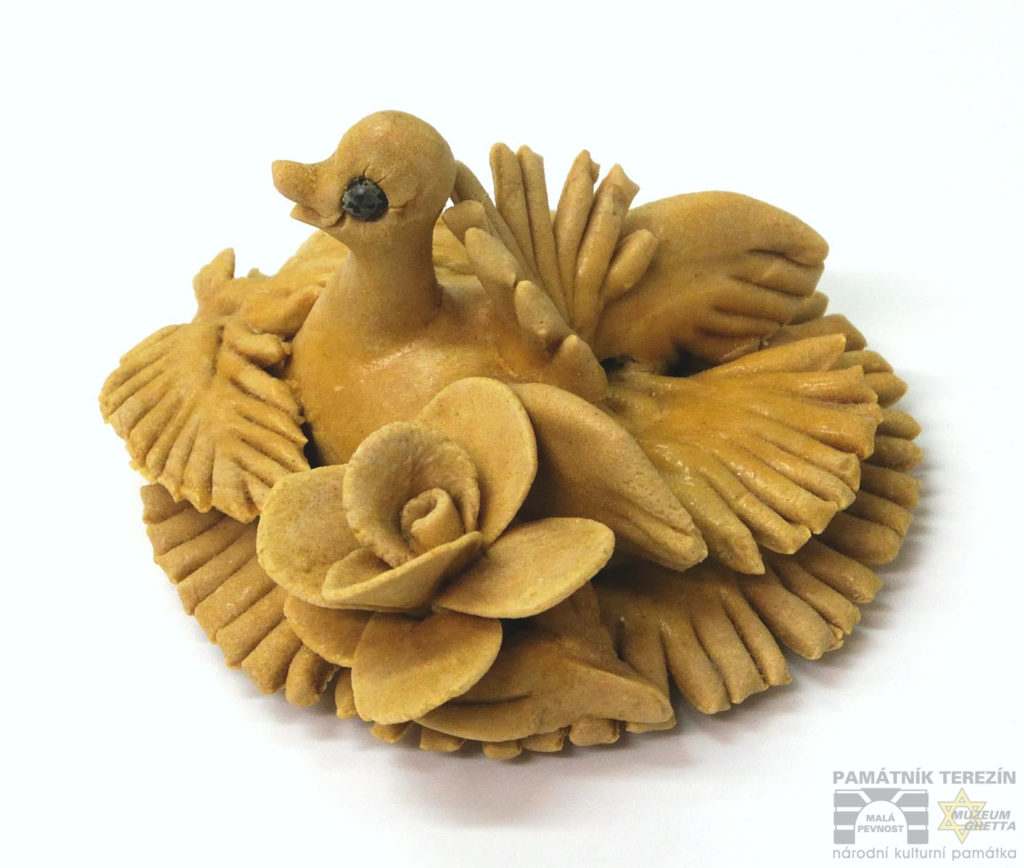(Taking a look at the collections of the Terezín Memorial)
Animal figurines made of dough rank quite indisputably among the Memorial´s collection items that offer truly compelling life stories. These exhibits were donated to the collections of the Terezín Memorial by Mrs. Helga Peroutková who had kept them until her 94 years. Thanks to the letter she had attached to the collection items we now know what had then happened.
Helga Marie Peroutková, née Wälzerová, was born on April 4, 1921. Unfortunately no detailed information about her family is known. During the occupation she was engaged to be married to Karel Lux, born in Prague on April 13, 1920. His father Arthur Lux (*October 16, 1884), salesman by profession, died already in 1929. Mother Josefa (*January 30, 1892), née Mahlerová, worked as a seamstress trying to feed Karel and his elder brother Bedřich (*June 7, 1918).
After the German occupation of the rest of the Czech lands and the establishment of the Protectorate of Bohemia and Moravia the life of the Lux family took a turn for the worse. Its Jewish origin had been established and this meant that the Nazi anti-Jewish measures began to be applied to the family. In an effort to avoid greater repressions to come Karel Lux volunteered to report to a re-educating camp at Lípa near Havlíčkův Brod, where he was sent on November 18, 1941. In the same month, a ghetto, i.e. reception and transit camp for Jews, was established in the fortress town of Terezín by the Nazis. The first from the family to be deported to the ghetto was Bedřich who came in transport J on December 4, 1941. Mother Josefa followed him on December 22, 1942, arriving in transport Ck. The last to join them was Karel, transferred from Lípa to the ghetto on May 13, 1943.
Throughout these harsh times Helga Peroutková went out of her way to give the Lux family whatever help she could get; e.g. she tried to get them coal for heating. Her support continued even in Terezín: thanks to Karel´s uncle, then working in the B. Fragner pharmaceutical company, she managed to smuggle medicaments into the Ghetto in 1943. According to plan, she waited near the Terezín cemetery for the group of inmates including Karel, accompanied by guards, who passed by on their way back from work on a farm owned by an SS officer. On that spot she succeeded in passing the medicaments to Karel unnoticed. He then smuggled the precious “contraband” into the Ghetto and gave it to those who needed it most. It is highly likely that he had received the above mentioned dough animal figurines as an expression of thanks for this courageous act.
However, Karel Lux did not stay in Terezín for long, less than four months after his arrival he was deported by transport Dl on September 6, 1943 to Auschwitz where he perished at the age of 23 years. On November 10, 1943, probably due to some misdemeanor against the rules, his brother Bedřich was taken from the Ghetto to the Gestapo Prison in the nearby Small Fortress. But he later ended in Auschwitz anyway. He was kept in the camp from the end of April 1944 until its liberation. Mother Josefa had survived until the end of the war in Terezín.
After the liberation Helga Peroutková and Josefa Luxová met again but their reunion was marred by Karel´s death. As a keepsake to remind her of the deceased fiancé Helga received from Josefa the animal figurines made of dough which Karel had managed to give to his mother before his transport from the Ghetto. In 1949 Helga decided to flee the communist Czechoslovakia and took those souvenirs with her to Canada. She lived in Canada together with her husband František Peroutka (1912–2009) whom she had married still in her native country. They settled down in Toronto. She died on July 1, 2018, at the blessed age of 97. No information is unfortunately available about the further fate of the Lux family.
Michael Michner




